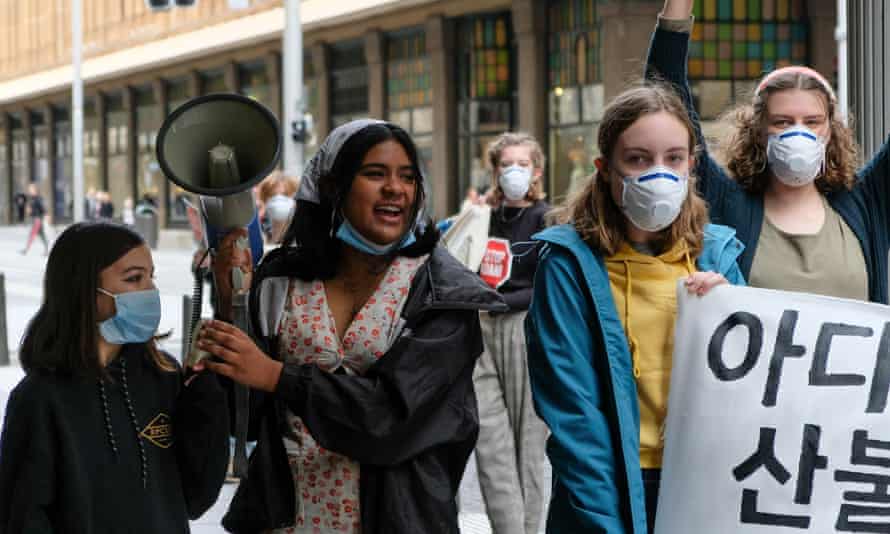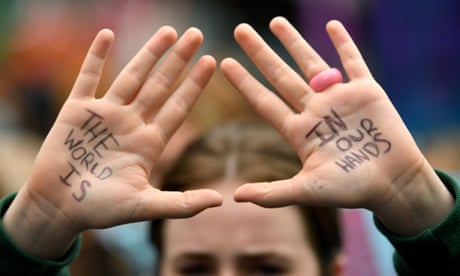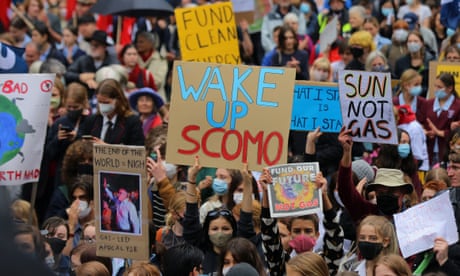Extract from The Guardian
There is no feeling like marching with thousands of my peers, united in our demand for real action. It’s what gives us hope.

As a young woman residing in western Sydney, I’ve seen the impacts of the urban heat island effect. I have seen the floods, and every summer I’m terrified for my safety due to bushfires. My anxieties and those of thousands of young people in Australia are real, and they will not be alleviated by school chaplains.
Climate anxiety is not rooted in activism, it is rooted in science and facts. The latest Intergovernmental Panel on Climate Change report stated we need to cut emissions to net zero as soon as possible in order to prevent some of the worst impacts of climate change, yet the Australian government has already pledged another $58.6m to gas and continues to subsidise the work of climate-wrecking coal, oil and gas companies.

How can young people feel confident in their futures when we’re told climate disasters are only going to get worse? It is hard to imagine a bushfire season in New South Wales worse than the one we had in the summer of 2019-20, yet it is on the cards. Scientists and scholars have told us that we are potentially facing societal breakdown, a situation in which environmental degradation will push highly connected and energy-intensive communities to breaking point. At the point of collapse, societies will struggle to secure enough food and water, energy and manufacturing will be scarce, and land to live on will be fought over by those escaping climate crises from other strained parts of the world.
This is why young people are anxious. There is a real, existential threat facing us all, and we are meeting that with a level of anxiety befitting the scale of this threat.
Young
people are anxious not because of alarmism, but because the climate
crisis is already here and it is hurting and damaging communities
globally. In our lifetimes, entire Pacific nations are likely to become submerged. More than 500 Australians die of heat stress each year, yet we are expected to carry on as if there is no problem, and everything is normal.
If
anxiety is about fear of the unknown or of uncertain outcomes, then we
are literally the definition of anxiety. We cannot and will not ignore
what’s happening right in front of our eyes, and the persistent inaction
of our leaders is a heavy load to carry.
Activism has been the antidote, not the enemy of our mental and emotional wellbeing

Activism has given me and so many other young people hope. There is no feeling like marching on the streets with tens of thousands of my peers, all united in our demand for real action on climate change, and in our call for the government to do more to protect future generations. Climate activism has been able to unify young people who have the shared experiences of climate anxiety. It has never been a source of “needless anxiety”.
Most importantly, my anxiety about climate change has not depleted me of hope. I know that Australia is in an incredible position to move towards renewable energy and fast-track climate solutions, but it takes real leadership to do this. It takes a rejection of the money and greed that clouds the interests of the government. It requires the prioritisation of people over profit, and of long-term thinking over short-term gains.
Australia was recently ranked last for climate action out of nearly 200 United Nations member countries. These are not reporting anomalies. This is the world we live in. But it doesn’t have to be. Young people are asking for action on climate change. Real, timely action. Chaplaincy programs are not the solution, so let’s get to the business of addressing the climate crisis.
No comments:
Post a Comment